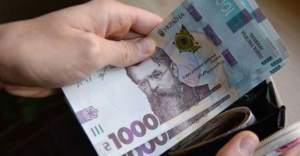
The International Monetary Fund (IMF) supports the decision of the National Bank of Ukraine to switch from a fixed exchange rate regime to a managed flexibility regime starting October 3, and believes that this will further support the stability of the economy and the foreign exchange market, said Natan Epstein, Deputy Head of the IMF Mission to Ukraine.
“The ability to manage the exchange rate in a way that minimizes fluctuations seemed to us to be an important step forward,” he said at a briefing in Kyiv on Wednesday.
Epstein reminded that as part of the program, the NBU in late June approved a strategy supported by the Fund to normalize its monetary and exchange rate policies, which includes a relaxation of exchange controls, as well as a gradual increase in exchange rate flexibility and, ultimately, a return to the inflation targeting system.
According to the deputy head of the mission, the conditions necessary for abandoning the fixed exchange rate have been met, primarily a decline in inflation, a stronger position of international reserves, and stability in the foreign exchange market.
In general, Epstein noted the trust that the NBU managed to gain in managing monetary and foreign exchange policy during the war.
The IMF representatives also expressed satisfaction with the existing dialog between the NBU and the Ministry of Finance and its results, which do not call into question the independence of the central bank.

The Verkhovna Rada on Thursday supported in the second reading and in general the bill No. 9346-1 with amendments to the Budget Code of Ukraine on ensuring predictability of budget policy and strengthening debt sustainability, the head of the budget committee of the parliament Roksolana Pidlasa said.
According to her, the adoption of the law ahead of schedule means the implementation of a new structural beacon (#10) under the EFF Extended Fund Facility Program with the International Monetary Fund, as well as the launch of the implementation of beacon #12 – revision of the Medium-Term Debt Management Strategy with a deadline for its publication by the end of September this year.
Pidlasa specified that the adopted law prescribes to submit to each draft law on amendments to the state budget an expert opinion of the Ministry of Finance and to consider such draft laws in the Rada if there are conclusions of the Ministry of Finance on their support.
In addition, it restores more stringent conditions for amending the law on the state budget, as defined by Article 52 of the Budget Code, leaving the exception in the conditions of martial law revision of expenditures of the security and defense sector, the MP said.
Another norm of the adopted law is the restoration of the medium-term budget planning by drawing up the Budget Declaration from January 1, 2024, which was stopped last March due to the full-scale invasion of the Russian Federation, Pidlasa pointed out.
She added that the law limits in 2023-2028 the volume of state guarantees provided by decisions of the Cabinet of Ministers to 3% of the planned revenues of the general fund of the state budget, while the limit of state guarantees provided on the basis of international treaties will be determined by the law on the state budget.
Finally, the document instructs to resume this year the development of the Strategy of State Debt Management for 2024-2026, also halted due to the full-scale invasion, providing for its submission by the Ministry of Finance to the Government for consideration by October 25, 2023 and approval by the Government within a month from the date of adoption of the law on the state budget for 2024.
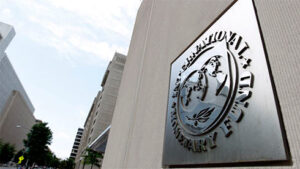
The Board of Executive Directors of the International Monetary Fund (IMF) has completed the first review of the Extended Funding Facility (EFF) program for Ukraine and approved the immediate release of the second tranche of SDR 663.9 million (about $890 million) to be used for budget support.
“Officials have made significant progress in meeting their EFF commitments under difficult conditions, meeting all applicable quantitative performance criteria by the end of April and structural benchmarks by the end of June, and remain highly committed to the program,” the fund said in a release Thursday on its website.
At the same time, the fund noted that sustained accountability and momentum for reforms are needed to ensure macroeconomic and financial stability in the difficult period ahead.
“This includes maintaining a solid tax revenue base (including by refraining from measures that could undermine the tax base), supporting sustainable disinflation and exchange rate stability, maintaining a healthy banking sector, and advancing critical governance and anti-corruption reforms, including on asset declarations, financial monitoring and the Specialized Anti-Corruption Prosecution Service (SAP),” the release specified.
The IMF added that it is also crucial that external financing of the budget and reconstruction projects continue on concessional terms, compatible with financial and debt sustainability.
Fiscal policy efforts should also focus on developing a National Revenue Strategy (NRS) that will anchor much-needed revenue mobilization to support reconstruction and social spending, it was pointed out. “Restoring the legal framework for midterm budget preparation, budget credibility, and debt management is also critical, coupled with measures to increase fiscal transparency and strengthen public investment management,” the Fund noted.
Commenting on the financing strategy and debt sustainability, the IMF stated that external support for the budget will continue to make up the bulk of budget financing, although mobilizing domestic financing along with avoiding issuance is still important.
The Fund added that in addition to the March 2023 commitment by the Ukraine Creditors Group (CCG) to restructure part of the official debt, there is a credible process for resolving external commercial debt, according to Fund staff.
Speaking of monetary and exchange rate policy, the IMF stressed that the program aims to further support sustainable disinflation and exchange rate stability, including by maintaining an adequate level of foreign exchange reserves while prudently managing wartime excess liquidity.
“As soon as conditions permit, the program will support a transition to a more flexible exchange rate, a further loosening of exchange controls, and a return to an inflation-targeting system,” the Fund pointed out without any specification of timing.
In the financial sector, the IMF called for continued vigilance, given that the true state of the banking system remains unclear and risks of further shocks, including nationalization of banks, remain. She said bank diagnostics, banking supervision reform, state bank governance and contingency planning remain high priorities.
The fund also stressed the importance of governance and anti-corruption reforms needed to quickly restore living standards and pave the way for EU accession, as well as build public and donor confidence, including in the postwar period.
“It will also be important to pursue a comprehensive strategy for critical spending during recovery and reconstruction, including on energy and procurement,” the IMF added.
As reported, the IMF and Ukraine reached a staff-level agreement on an updated set of economic and financial policies as part of the first review of the four-year $15.6 billion EFF program on May 30.
It was noted that all the quantitative performance criteria at the end of April and structural benchmarks at the end of May had been met, paving the way for the IMF board of directors to consider granting Ukraine the second tranche of the EFF program of about $900 million (SDR663.9 million).
The program was approved on March 31 this year, and the first tranche of $2.7 billion was allocated in early April as well. The program’s schedule assumes that Ukraine will receive three tranches of SDR664 million (about $900 million) after the first tranche in mid-June and October of this year and in late February of the following year based on the first, second and third revisions, when the fulfillment of obligations is estimated for the end of April, June and December of this year, respectively.
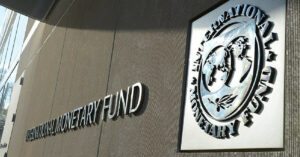
The International Monetary Fund’s four-year extended EFF financing program for Ukraine also envisions the country receiving $80 billion from multilateral and bilateral donors during this period, including $20 billion in grants and $60 billion in concessional loans, as well as another $20 billion in debt flow relief, said Gavin Gray, head of the Fund mission.
At a press conference on Friday, after announcing the decision to approve the $15.6 billion EFF program, he recalled two announcements made last week: from a group of official Ukrainian creditors about their willingness to defer the country’s debt payments for the program period and about Ukraine’s intention to agree the same with the holders of Eurobonds and other external commercial debts.
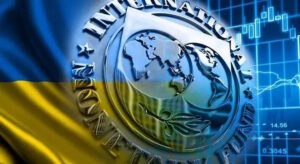
The board of directors of the International Monetary Fund (IMF) on Friday approved a four-year, SDR11.6 billion ($15.6 billion) extended EFF program as part of a total support package for Ukraine of $115 billion, the Fund said in a statement.
“The Ukraine program (for 2023-2027), supported by the EFF, aims to anchor policies to maintain fiscal, external, price and financial stability and support economic recovery, while improving governance and strengthening institutions to promote long-term growth in the context of post-war recovery and Ukraine’s path to the EU,” the IMF said.
The Fund specified that the decision of the board of directors allows for immediate disbursement of about SDR2 billion (or $2.7 billion).
IMF mission chief Gavin Gray clarified to reporters that the first review of the program is expected in June-July this year, the second by the end of October, possibly in early November, and from 2024 will be quarterly.
According to the release, EFF approval is expected to attract large-scale concessional financing from international donors and Ukraine’s partners to help resolve Ukraine’s balance of payments problem, achieve medium-term external viability and restore debt sustainability on a prospective basis in both baseline and negative scenarios.
The IMF notes that in view of the exceptionally high uncertainty faced by Ukraine, the EFF program envisages a two-stage approach. In the first phase of the program, scheduled for 2023-2024, the focus will be on three goals. These include, among others, strengthening the 2023 budget and supporting revenue mobilization, including by avoiding new measures that could undermine tax revenues.
In addition, it is about sustainable disinflation and exchange rate stability, including by maintaining sufficient foreign exchange reserves, and promoting long-term financial stability, including by preparing a more in-depth assessment of the banking sector and further strengthening the independence of the central bank.
“Independent and effective anti-corruption institutions will help reduce corruption risks during martial law and build public and donor confidence in future reconstruction,” the Fund adds.
He also noted that the first phase of the program will protect social spending.
“The second phase of the program will shift the focus to more ambitious structural reforms to strengthen macroeconomic stability, support early post-war recovery, and enhance resilience and higher long-term growth, including in the context of Ukraine’s EU accession goals,” the IMF pointed out.
According to the release, Ukraine is expected to return to its pre-war policy fundamentals, mainly a flexible exchange rate and inflation targeting, while improving productivity and competitiveness, strengthening institutions and addressing financial and energy sector vulnerabilities.
In addition, fiscal policy will focus on critical structural reforms to guarantee medium-term revenues by implementing a national revenue strategy, along with improving public financial management and introducing public investment management reforms to support postwar recovery.
“The risks to the EFF program are exceptionally high. The success of the program depends on the size, composition and timing of concessional external financing to help close the budget deficit and external financing and restore debt sustainability on a forward-looking basis under baseline and negative scenarios,” said First Deputy Managing Director Gita Gopinath.
IMF Chief of Mission Gavin Gray specified that besides $15.6 billion from the Fund, the support package implies $80 billion from multilateral and bilateral donors, of which $20 billion in grants and $60 billion in concessional loans, as well as another $20 billion in deferred external debt payments.
According to him, the baseline scenario assumes the completion (winding down) of the war in mid-2024, while the negative scenario – by the end of 2025 with an increase in financing needs up to $240 billion.
At the same time, the IMF representative stressed that the program provides additional guarantees from a number of shareholders of the Fund, as preferred creditors, in particular the G7 countries, Belgium, Lithuania, the Netherlands, Poland, Slovakia and Spain.
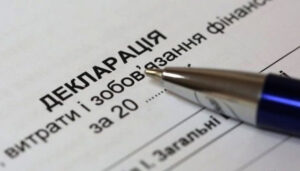
Reinstating the obligation for officials to file asset and income declarations in the coming months is one of the conditions of the $15.6 billion expanded EFF financing program approved by the International Monetary Fund (IMF) for Ukraine on Friday, Fund mission chief Gavin Gray said.
“Under the program, the authorities are committed to a targeted recovery of asset declarations even in the current circumstances. We see this as an important measure…,” he said at a briefing Friday.
Gray specified that the IMF will work with the authorities on this issue in order to resolve it by the first review of the program in June-July this year.
As reported, in February this year, the ambassadors of G7 countries in Ukraine expressed hope that the Verkhovna Rada will soon resume the system of electronic declaration of assets and income of officials, which was suspended during martial law, which “will prevent corruption and strengthen citizens’ trust in government.
Chairman of the National Agency for Combating Corruption (NACC) Oleksandr Novikov said in mid-March that he expects the resumption of declarations in the next two months, but believes that the public part of the register of declarations should remain hidden until the end of the war.
According to him, all public authorities have access to the data of the register of declarations and the data they need to perform their official duties.
Declarations for the year 2022 filed about 6% of declarants. For 2021 – up to 50%, including two deputy heads of the presidential office, the Minister of Education and Science, the Minister of Defense, 28 people’s deputies, five heads of regional military administrations and 163 judges.